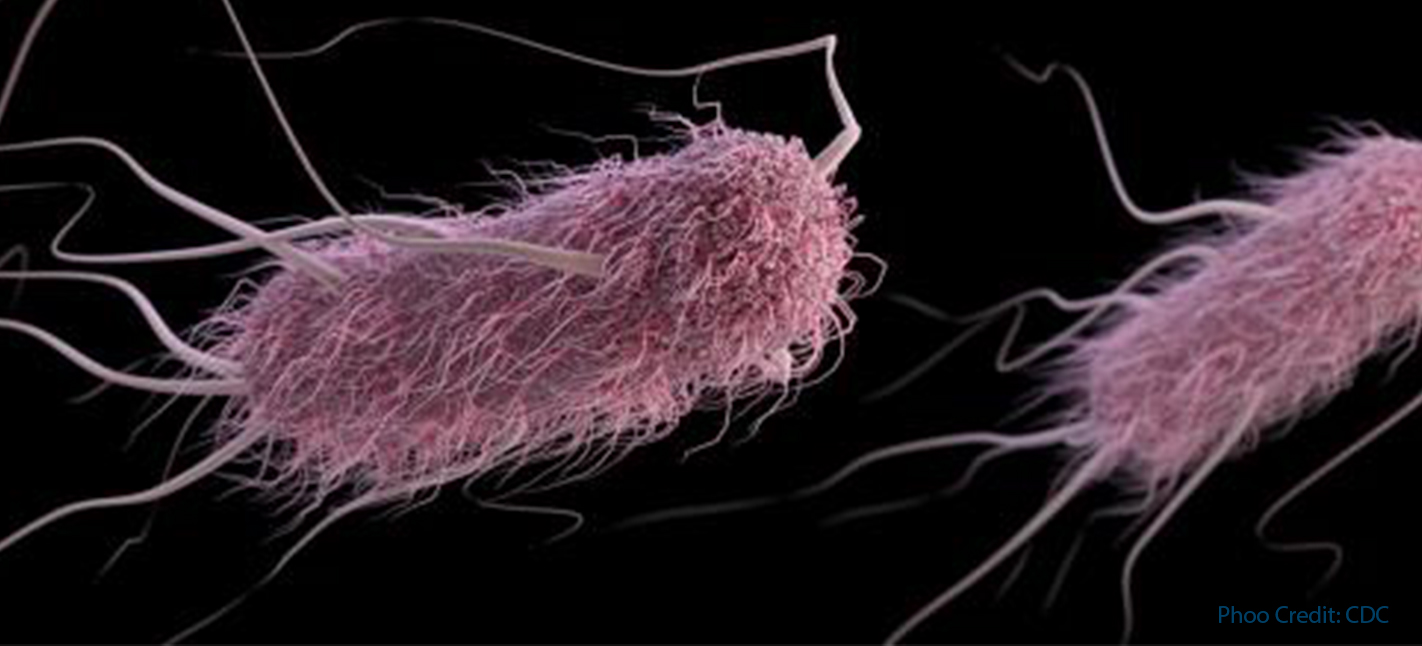Media Contacts: Nicole Tidwell, ntidwell gwu [dot] edu, 614-309-1293
gwu [dot] edu, 614-309-1293
WASHINGTON, DC (Aug. 28, 2018) - A strain of Escherichia coli (E. coli) found in retail chicken and turkey products may cause a wide range of infections in people, according to a study published today in the American Society for Microbiology’s open access journal mBio.
Researchers knew that E. coli could be passed from person-to-person in the community and in hospitals. However, this study, “Escherichia coli ST131-H22 as a Foodborne Uropathogen,” provides evidence that the E. coli lurking in fresh poultry products can be passed to people, leading to bladder infections and other serious conditions.
Many people think of urinary tract infections (UTIs) as a common and minor annoyance, but invasive UTIs that involve the kidneys or blood can be life-threatening. More than 80 percent of UTIs are caused by E. coli, but only a few strains are responsible for most of the serious infections. One type of E. coli, called E. coli ST131, is particularly adept at traveling from the bladder to the blood and kills thousands of people in the U.S. each year.
It’s unknown how most people pick up E. coli ST131 infections, and previous studies suggested that retail meat was not a source, but new research suggests that these earlier studies may have been too narrowly focused. A multi-center research team led by Lance B. Price, PhD, director of the Antibiotic Resistance Action Center (ARAC)based at the George Washington University Milken Institute School of Public Health (Milken Institute SPH), shows that there are multiple strains of E. coli ST131 and that one strain in particular may be passed to people via contaminated poultry meat.
Price and his colleagues, including those at the Translational Genomics Research Institute (TGen), conducted a one-year longitudinal study where they analyzed retail chicken, turkey and pork purchased from every major grocery chain in Flagstaff, Ariz. During the same year, the team also collected and analyzed urine and blood isolates taken from patients seen at Flagstaff Medical Center, the only major hospital in Flagstaff.
The team found E. coli in nearly 80 percent of the 2,452 meat samples and in 72 percent of the positive urine and blood cultures from patients. E. coli ST131 was the most common type infecting people and was also present on the meat samples. Next, the team had to find out just how closely related these bacteria were to one another, or, importantly whether people had acquired them from poultry.
To find out, Price and his team studied the genomes of the E. coli cells. They discovered that that almost all of the E. coli ST131 on the poultry products belonged to a particular strain called ST131-H22 and carried genes that helps E. coli thrive in birds. This same poultry-adapted strain was also found to be causing UTIs in people.
“In the past, we could say that E. coli from people and poultry were related to one another, but with this study, we can more confidently say that the E. coli went from poultry to people and not vice versa,” said Price, who is also a Professor of Environmental and Occupational Health at Milken Institute SPH.
Currently, poultry products are not routinely tested for the kind of E. coli strains that can cause UTIs. These findings underscore the importance of cooking poultry thoroughly and handling it carefully in the kitchen, Price said.
“This particular E. coli strain appears capable of thriving in poultry and causing disease in people,” said Cindy Liu, MD, MPH, PhD, first author of the paper and chief medical officer at ARAC. “Poultry products could be an important vehicle for bacteria that can cause diseases other than diarrhea.”
Funding for this study was provided by the United States Army Medical Research and Materiel Command; the National Institute of Allergy and Infectious Diseases at the National Institutes of Health; and the Office of Research and Development at Medical Research Service, Department of Veterans Affairs.
“We are now working to measure what proportion of UTIs might be caused by foodborne E. coli by looking at all E. coli strains, not only ST131,” Price said. “This is not an easy question to answer but an extremely important one.”


